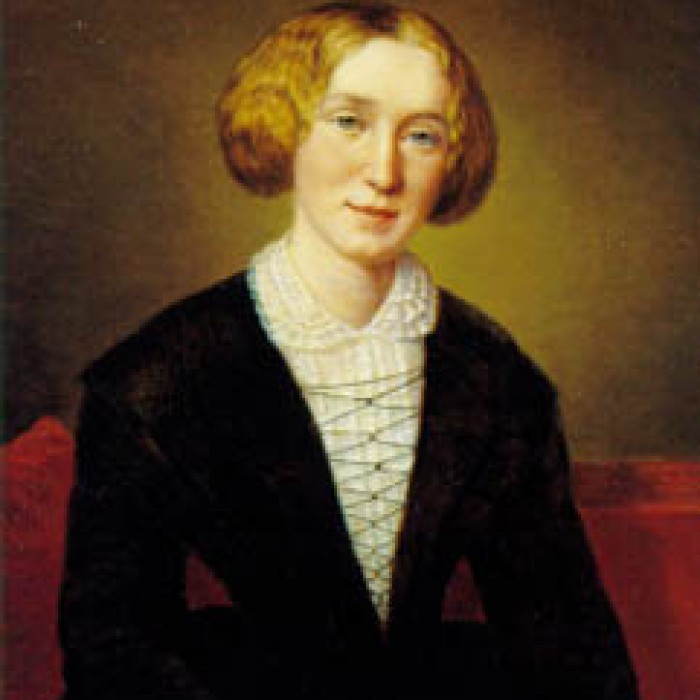
Mary Anne Evans (22 November 1819 – 22 December 1880; alternatively "Mary Ann" or "Marian"), known by her pen name George Eliot, was an English novelist, poet, journalist, translator and one of the leading writers of the Victorian era. She is the author of seven novels, including Adam Bede (1859), The Mill on the Floss (1860), Silas Marner (1861), Middlemarch (1871–72), and Daniel Deronda (1876), most of which are set in provincial England and known for their realism and psychological insight.
She used a male pen name, she said, to ensure that her works would be taken seriously. Female authors were published under their own names during Eliot's life, but she wanted to escape the stereotype of women writing only lighthearted romances.
She also wished to have her fiction judged separately from her already extensive and widely known work as an editor and critic. An additional factor in her use of a pen name may have been a desire to shield her private life from public scrutiny and to prevent scandals attending her relationship with the married George Henry Lewes, with whom she lived for over 20 years.
Eliot's Middlemarch has been described by Martin Amis and Julian Barnes[3] as the greatest novel in the English language.
On her return to England the following year (1850), she moved to London with the intent of becoming a writer, and she began referring to herself as Marian Evans. She stayed at the house of John Chapman, the radical publisher whom she had met earlier at Rosehill and who had published her Strauss translation.
Chapman had recently purchased the campaigning, left-wing journal The Westminster Review, and Evans became its assistant editor in 1851. Although Chapman was officially the editor, it was Evans who did most of the work of producing the journal, contributing many essays and reviews beginning with the January 1852 issue and continuing until the end of her employment at the Review in the first half of 1854.
Source: Link

1564 - 1616

1803 – 1882

1854 – 1900

1942 – 2016

1928 – 2014

1835 – 1910

1869 – 1948

1884 – 1962
1898 – 1963

1929 – 1993

1879 – 1955

1809 – 1865

1807 – 1870

1800 – 1859

1795 – 1821

1755 – 1793

1984 -

1989 – 2011

1943 – 2001

1815 – 1902

1929 – 1994

1767 – 1848
